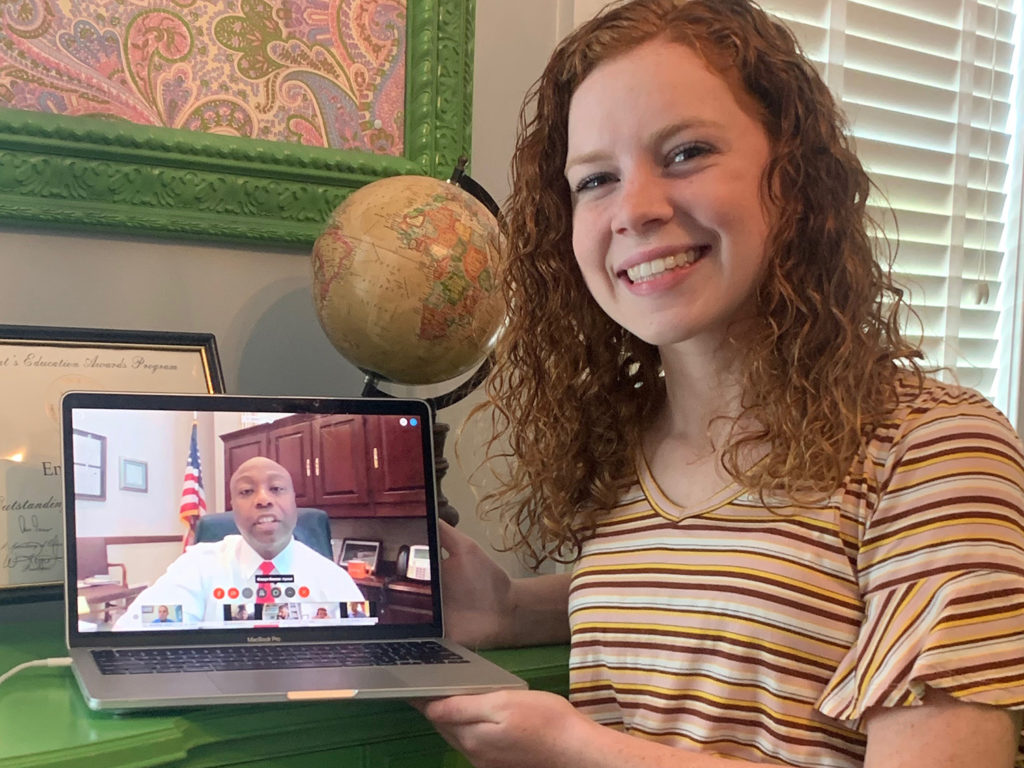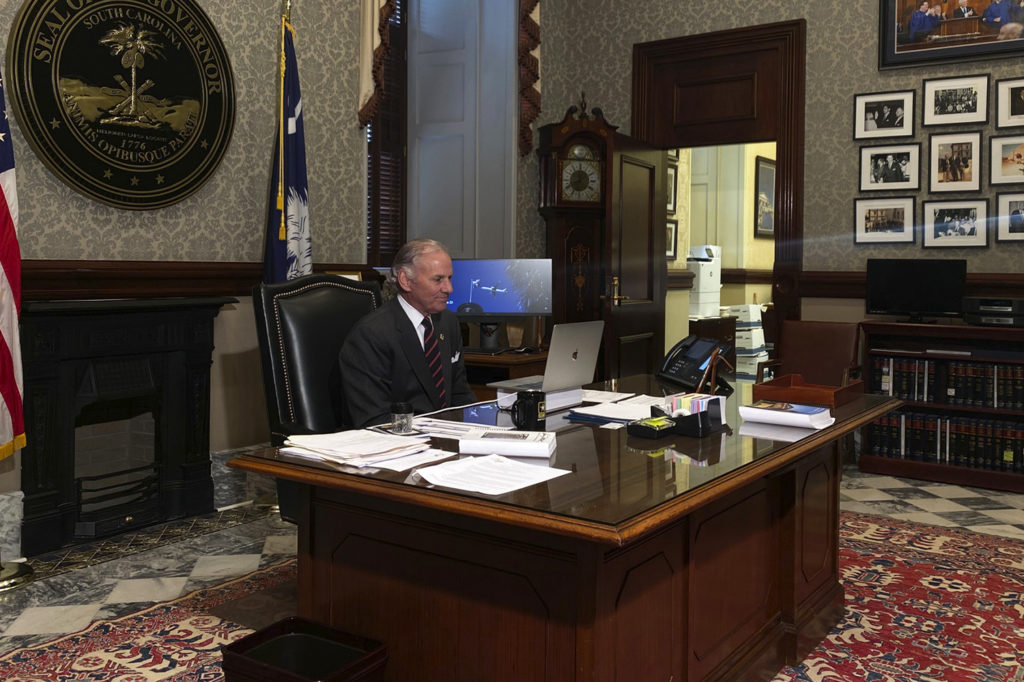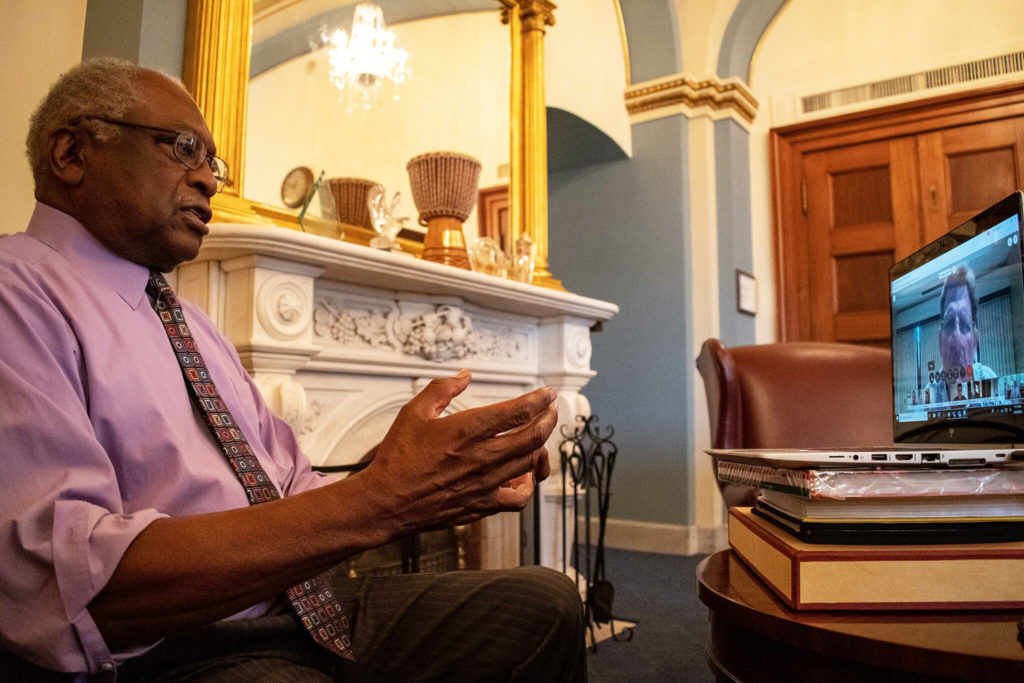
When it became clear that COVID-19 would force cancellation of the 2020 NRECA Youth Tour to Washington, D.C., leaders of the Electric Cooperatives of South Carolina came up with creative online ways to connect the students with elected officials and each other.
“We wanted something that could capture some of the excitement of NRECA’s Washington Youth Tour and another youth outreach program we sponsor in our state capital of Columbia,” said Van O’Cain, director of member and public relations for the statewide association. “Two groups of students lost out on the opportunity to take a physical trip, so we tried to come up with ways to connect them with influential leaders in the state and on a national level.”
Statewide CEO Mike Couick and his senior managers worked for six weeks to pull together a series of virtual sessions that included opportunities for the high school students to talk to top state and federal officials, learn new skills and make lasting friendships.
Nearly 80 young South Carolinians—high school juniors and seniors—signed up for about 40 hours of webinars and streaming content that included podcast production training and informal discussions with political leaders. The program has been broken into blocks of about two hours per session and scheduled over four weeks in June and July.
The students had virtual visits with Republican Gov. Henry McMaster, Republican U.S. Sens. Lindsey Graham and Tim Scott, and Rep. Jim Clyburn, the third-ranking Democrat in the House of Representatives.

They also talked to the state epidemiologist and state school superintendent about COVID-19 and discussed the social justice and civil rights issues now dominating state and national news.
O’Cain, who has served as Youth Tour coordinator for 14 years, said he was most worried that the cancellation of the June trip to Washington would deprive students of “the connections they could make with each other.” To fill that gap, the association included time for students to participate in trivia games and gave them opportunities to learn about each other’s interests and aspirations.
“We had a student who showed off her pig, and another student who showed off a horse,” said O’Cain. “We’ve had conversations about foods, music, sports and television. It wasn’t just about talking to leaders, it was about learning from each other.”
Youth Tour Alternatives
NRECA also has developed new content designed to support youth programming for the nation’s electric cooperatives. That content includes online presentations, social media meetups, and other interactive presentations hosted by past Youth Tour participants.
“Our programming will target Youth Tour program alums, parents, co-op communicators, those who would have attended YT2020, and anyone else who is interested in tuning in,” said Beth Knudson, NRECA’s youth programs and training manager.
Scheduled sessions will focus on the roles co-ops are playing to help their communities respond to the pandemic. There also will be interviews with Youth Tour alums who are now working for co-ops, interactive discussions of issues affecting rural communities and an explanation of how the Co-ops Vote program helps amplify rural voices.
Common Thread of Commitment

Co-ops from Colorado, Kansas, Oklahoma and Wyoming are sponsoring a leadership webinar for students who would have attended the annual Cooperative Youth Leadership Camp in Colorado this summer, said Shana Read, director of education and training for Kansas Electric Cooperatives.
“Motivational speaker and author Craig Zablocki originally was scheduled to conduct the session during the camp,” said Read. “He will help participants focus on developing and understanding important leadership traits.”
In South Carolina, students will compete in teams to produce the best podcast, said O’Cain,
The topic of the podcasts will be COVID-19 and its effects on 2020 and the future. Each team will use information shared during the statewide association’s summer youth program series, and the insights offered by guests, to make presentations. South Carolina journalists have volunteered to judge the entries.
“This is going to happen over several weeks where the students are going to work together,” said O’Cain, adding that members of the winning team each will receive a $5,000 scholarship. “The virtual collaborations are how many of us have had to work together since the COVID-19 pandemic began.”
Derrill Holly is a staff writer at NRECA.
Related Content:
Read More on the electric co-op response to the COVID-19 Pandemic